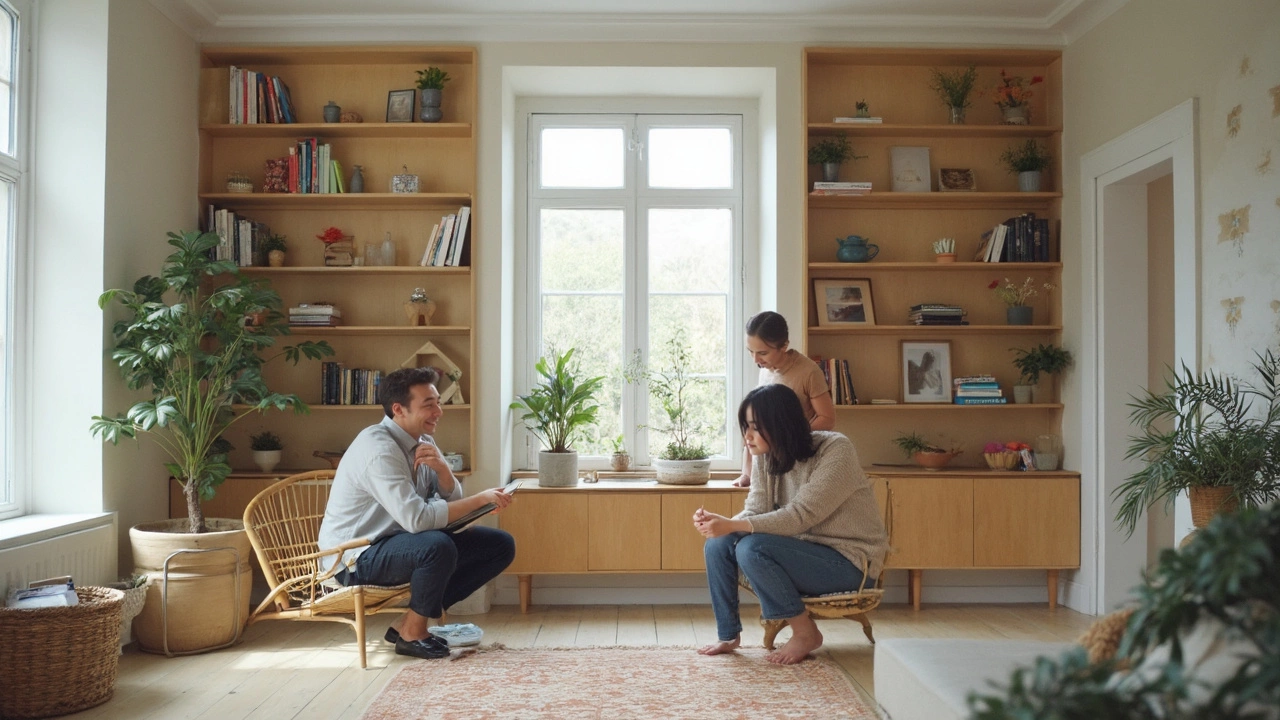Shelving Costs: What You Really Pay for Home Storage
Thinking about adding shelves? The price tag can surprise you, especially if you don’t know where the money goes. In this guide we break down the biggest cost drivers, show you how to budget for a project, and give quick tips to keep the bill in check.
Materials and Size: The Core of Your Budget
Wood, metal, glass, and plastic each have a price range. Pine or particle board will cost anywhere from £15 to £40 per meter, while hardwoods like oak or walnut jump to £60‑£120 per meter. Metal frames are usually £30‑£70 per meter, and glass shelves start around £40 per piece and climb quickly if you pick tempered or beveled glass.
The length and depth also matter. A 2‑meter wall‑to‑wall unit will cost roughly double a 1‑meter run of the same material. Depths of 30 cm are cheaper than 45 cm because they use less material and fewer brackets.
Don’t forget the finish. A simple clear coat adds £5‑£15 per shelf, while a painted or stained finish can add £20‑£30 per board.
DIY vs. Ready‑Made: Where You Save Money
Buying a ready‑made unit from a big‑box store is the fastest route, but you often pay for design and labor. A standard 3‑shelf unit in laminated wood can run £80‑£150, including basic installation.
Going DIY can slash the price dramatically. Purchase raw boards or metal brackets, then assemble at home. The raw material for a 2‑meter, 4‑shelf setup might be £70‑£100, and you only spend on tools or a few brackets, which are usually under £10 each.
For a middle ground, buy a flat‑pack kit. IKEA‑style shelves cost £40‑£90, and you’ll need about an hour to assemble. Add a few extra brackets if you want extra support, and you’re still well under a professional install.
Installation costs vary. A handyman typically charges £30‑£45 per hour, plus travel. For a simple wall‑mounted unit, expect a 1‑hour job, so around £40‑£60 total. Complex builds with anchoring into studs or ceiling mounts can take 2‑3 hours, pushing the cost to £80‑£120.
Ask yourself how much you need versus how much you want. If a cheap particle board shelf holds a few books, it’s fine. If you plan to store heavy kitchenware or a home‑gym setup, invest in sturdier material and stronger brackets to avoid breaking later.
Don’t overlook hidden fees. Delivery can add £10‑£30 for large items, especially if you live on a higher floor. Some retailers charge extra for extra‑long runs or custom cuts. Always check if the price includes brackets, wall plugs, and screws.
Here’s a quick budgeting cheat‑sheet:
- Material: £15‑£120 per meter (depends on wood, metal, glass)
- Finish: £5‑£30 per shelf
- DIY tools and brackets: £20‑£50 total
- Professional install: £40‑£120
- Delivery & extras: £10‑£30
Adding those up, a modest 2‑meter, 4‑shelf wooden unit can cost anywhere from £80 (DIY, cheap pine) to £300 (hardwood, pro install). Use the range to decide what fits your budget.
Finally, shop around. Local timber merchants often beat big stores on raw wood, and online marketplaces can have sales on metal brackets. Compare total cost, not just the headline price, and you’ll find a shelf solution that looks great without breaking the bank.
